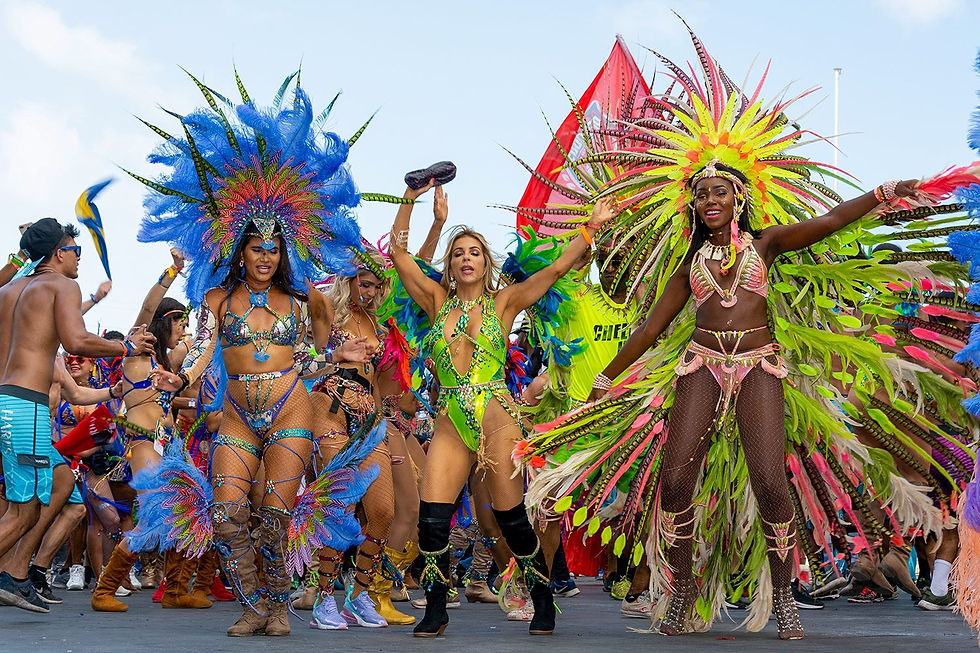
The origins of Caribbean Carnivals can be traced back to the colonial period of the Caribbean, particularly to the period of slavery. The carnival traditions were brought to the Caribbean by European colonizers, particularly the French and British, who brought with them the tradition of pre-Lenten festivities.
During the colonial period, enslaved Africans were not allowed to celebrate their traditional cultural practices. However, they were allowed to participate in the European pre-Lenten festivities. The enslaved Africans used these festivities as an opportunity to express themselves, celebrate their culture, and to mock their slave masters. They incorporated elements of their African cultural practices, such as music, dance, and colorful costumes, into the pre-Lenten festivities.
After the abolition of slavery in the 19th century, Caribbean people continued to celebrate carnival as a way to express their cultural identity and to assert their freedom. Carnival became an important part of Caribbean culture, particularly in countries like Trinidad and Tobago, Jamaica, and Barbados.

In Trinidad and Tobago, Carnival is celebrated on the Monday and Tuesday before Ash Wednesday, which marks the beginning of the Christian season of Lent. The festival is known for its elaborate costumes, which are often inspired by local folklore and mythology, as well as the lively music and dance that accompanies the parade.

In Jamaica, Carnival is celebrated in April or May, and is known as "Bacchanal". The festival is known for its raucous street parties, featuring local reggae and dancehall music, and elaborate costumes.

In Barbados, the festival is known as Crop Over, and is celebrated from June to August. It originated as a harvest festival, but has since evolved into a celebration of the island's culture and heritage. The festival features calypso music, colorful costumes, and a lively parade.

In the Dominican Republic, Carnival is celebrated in February, and is known for its colorful masks and costumes. The festival features traditional music and dance, as well as the popular "Carnival Queen" beauty pageant.
Over time, the carnival traditions in the Caribbean have evolved and adapted to reflect the unique cultural and historical experiences of each island. Today, Caribbean Carnivals are known for their vibrant colors, elaborate costumes, and lively music, and are celebrated throughout the Caribbean and in Caribbean diaspora communities around the world.







Comments